There’s more to life than money, but still …
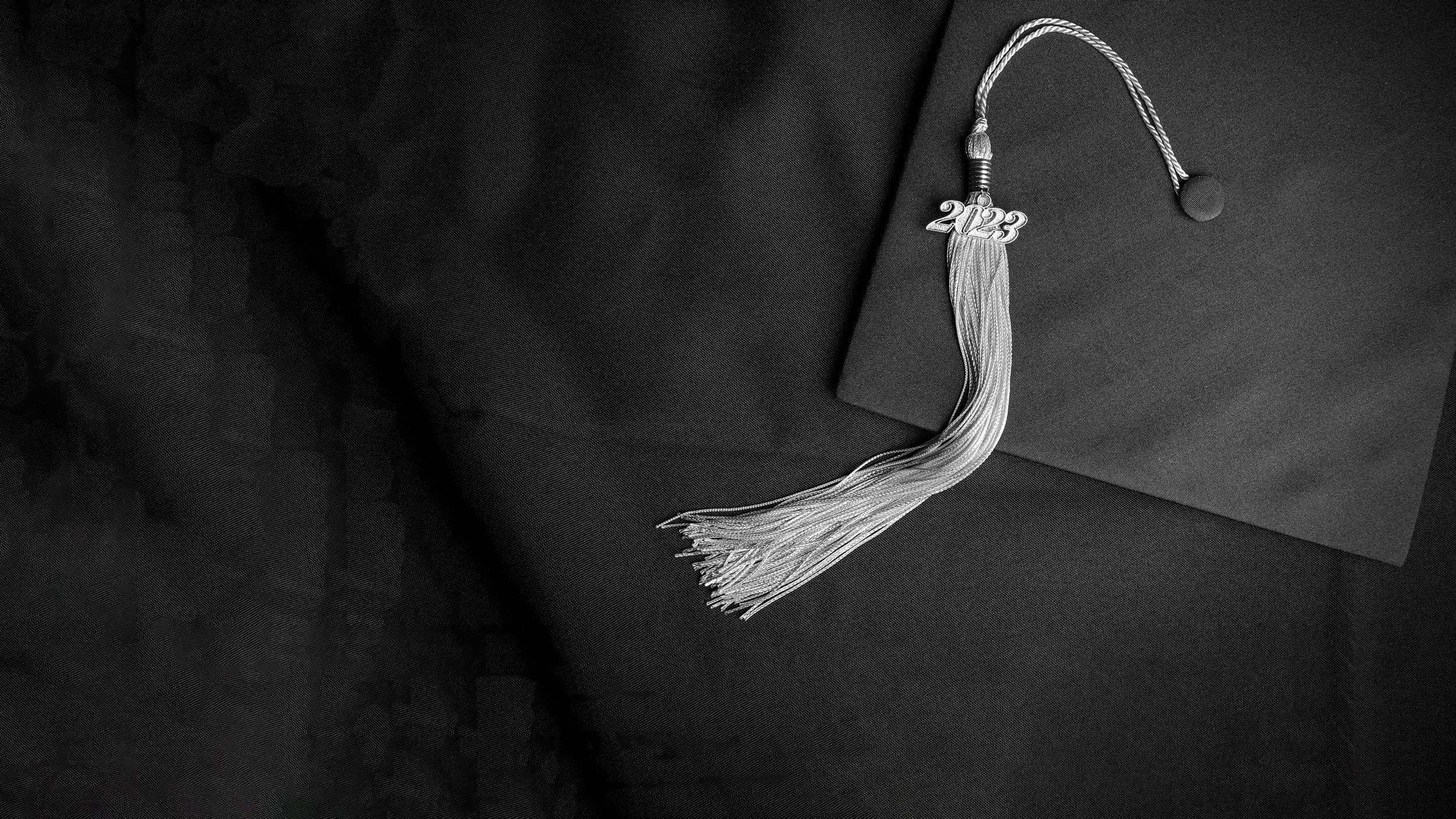
Advice for grads: Give back, have fun, speak out, and pay attention to your 401K
On the eve of Commencement, we asked a group of faculty members to share some advice for graduates as they finish one chapter and start another — what to do, what not to do, how to figure out what matters most. Responses have been edited for clarity and length.
“Be guided by the twin stars of lucha and esperanza, struggle and hope.”
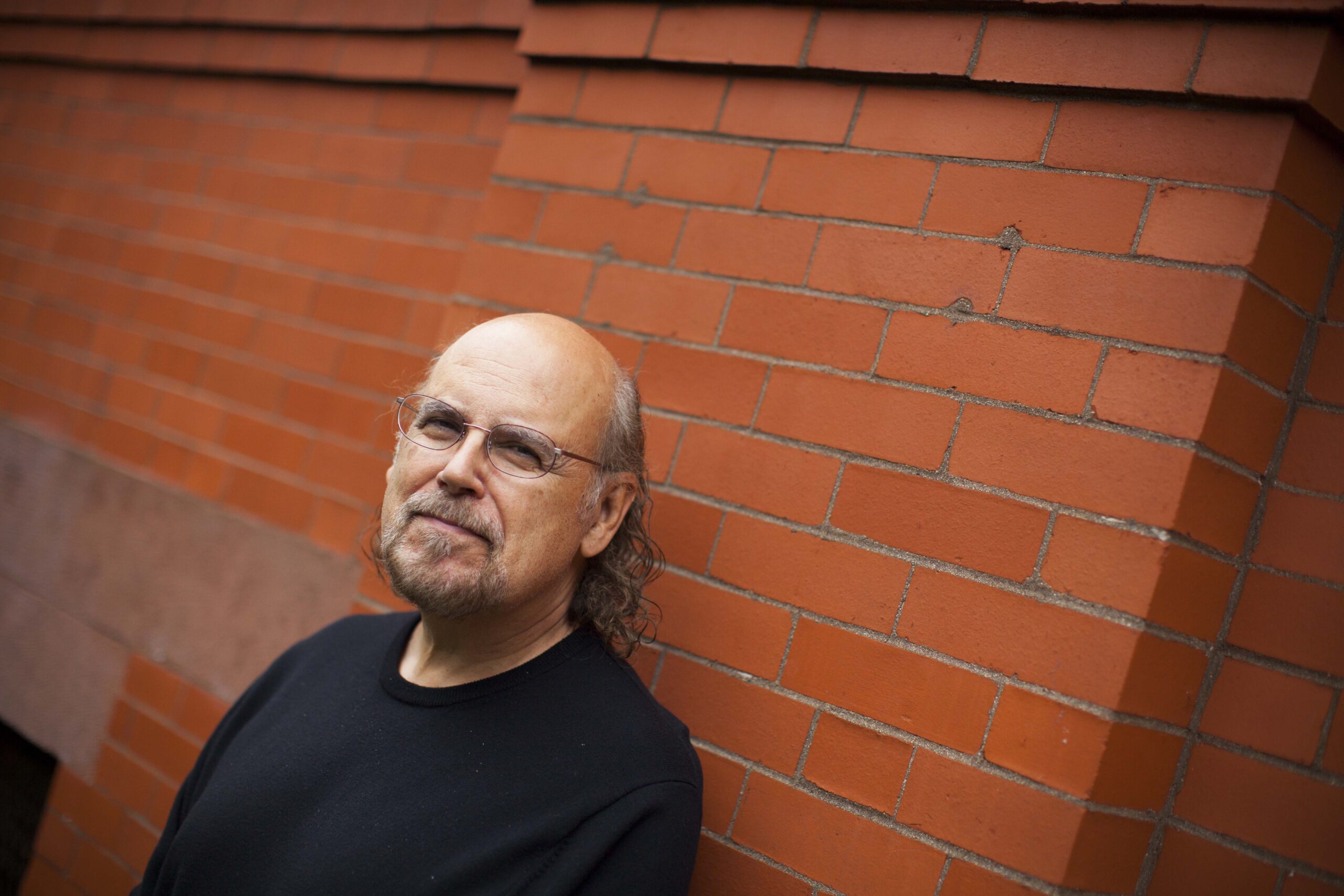
File photo by Stephanie Mitchell/Harvard Staff Photographer
Davíd Carrasco
Neil L. Rudenstine Professor of the Study of Latin America
One of the things I wish I had paid more attention to — not only in college, but after college — is the organization of financial resources. I grew up in a working-class family, and money was not on my mind. I don’t mean just earning a lot of money — becoming wealthy and accumulating money — but understanding how money works in society. I wish my education would have helped me understand more about not only the power and management of money, but also how to participate to encourage more equality in the society.
I would encourage students not to forget the most important lessons from their years on campus. A lot of times what happens is that students leave Harvard and when they go out into the world, they tend to forget some of the most important intellectual lessons they learned here: a class they took, a book they read, a professor who inspired them. Students shouldn’t forget that their future should be built on some of the most important lessons they learned, especially those having to do with social ethics. The question is not what is in your wallet, but what is in your library.
Paraphrasing the Chilean poet Pablo Neruda from one of my favorite Nobel Prize speeches, I’d like to say to the new graduates that they must be guided by the twin stars of lucha and esperanza, struggle and hope. It’s very important that students understand that the way ahead is going to be a lot about struggle — not only their personal struggles, but social struggles, and that their struggles ought to be in the service of the collective, of the family, of the group. One of the struggles is that we must try to make the new demography a better democracy. The other thing I’d like to say is that they must make of their Harvard education a useful working instrument that does something for the whole question of poverty. That is going to sink us all if there’s not some serious advancement in the issue of social equality. Love knowledge — but also put it to some sort of use in all the terrible crises that we’re going to face.
“Investing in one’s long-term retirement is something that we don’t teach and that lets privilege dictate who wins and who loses.”
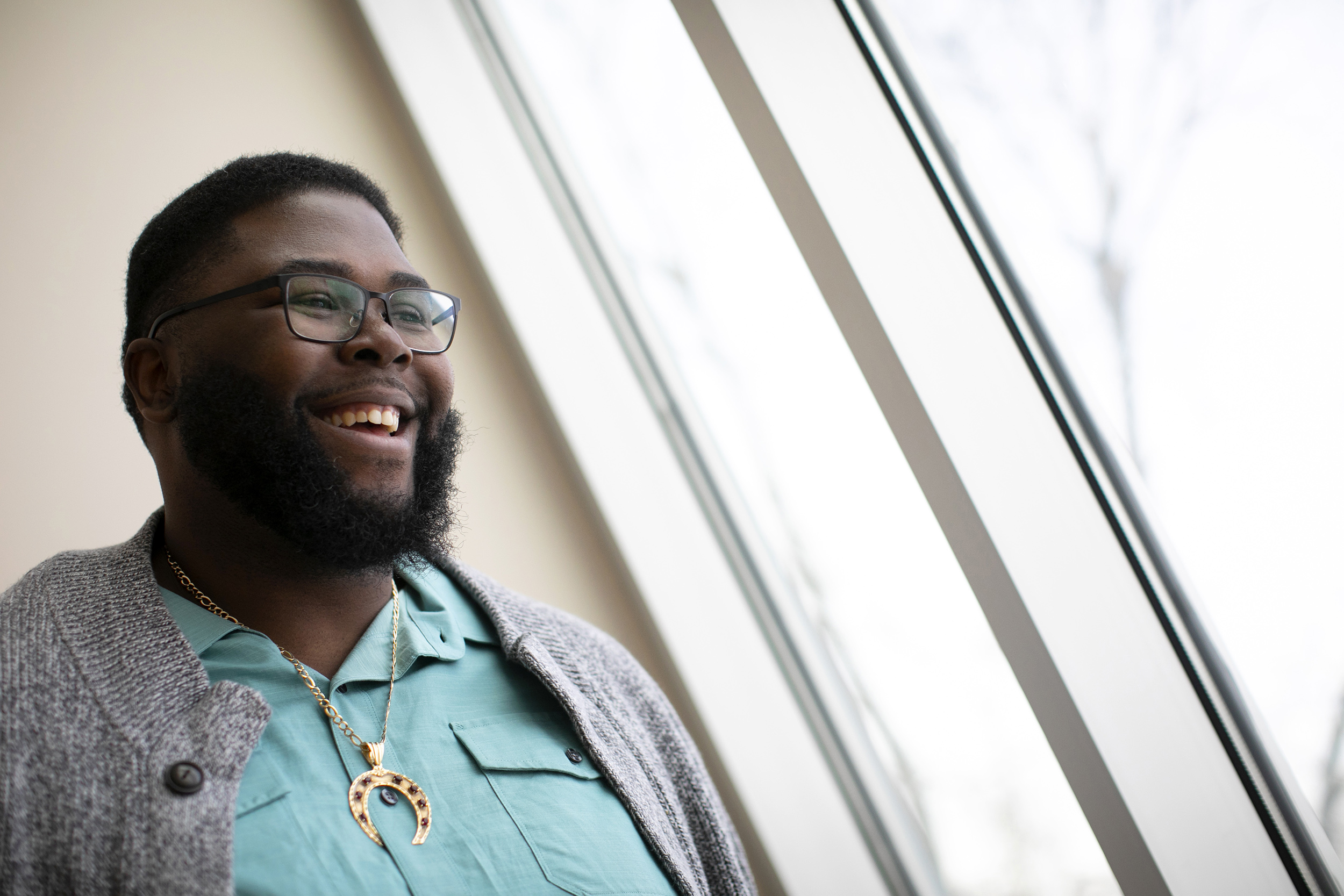
File photo by Stephanie Mitchell/Harvard Staff Photographer
Anthony Jack
Assistant professor of education
Take care of yourself. Prioritize yourself. This is not being selfish. This is about nurturing that return on investment. For some of us, the degree is not ours alone, but rather a collective project decades in the making. From fields of cotton to sugar cane to grapes, we are our ancestors’ wildest dreams, and the greatest aspiration of our more recent kin. They sacrificed themselves for you to not do the same, but to ascend. So go to therapy. Take that walk. Use those vacation days. Go to yoga. Take that nap. Read that book.
One piece of advice I wish I had received when I graduated is about what financial literacy really is. Credit reports. Hard inquiries. 401k. 503b. 1040. 1099. Roth IRA. No one walks you through choosing retirement contributions and other deductions. More generally, investing in one’s long-term retirement is something that we don’t teach and that lets privilege dictate who wins and who loses. Many colleges want to shy away from being too practical, but we do our students a disservice if we only teach them how to study the world and not navigate it.
“Elevate the FQ — fun quotient.”
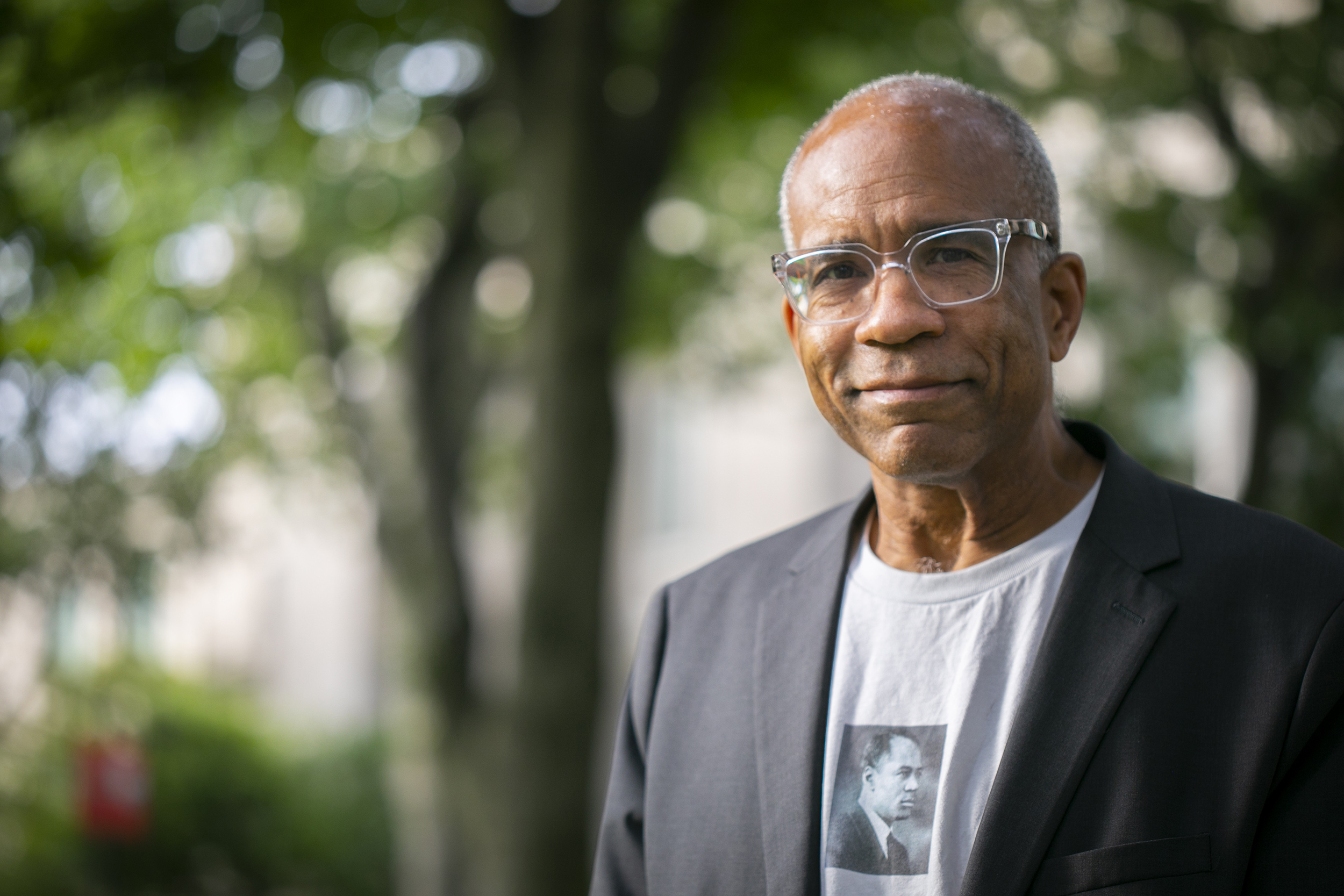
File photo by Stephanie Mitchell/Harvard Staff Photographer
Randall Kennedy
Michael R. Klein Professor of Law
My advice to graduates, indeed to everyone, is to do what one can to elevate the FQ — fun quotient. Life goes by so quickly! There is not a minute to waste in deriving as much pleasure from existence as possible. I was quite serious, earnest, responsible, buttoned-down in my post-college life. I’m not ashamed of that. But looking back I wish that I had been more attentive to enjoying a higher FQ.
“There is a contribution you can add to the world — the ‘thing’ that only you can do.”
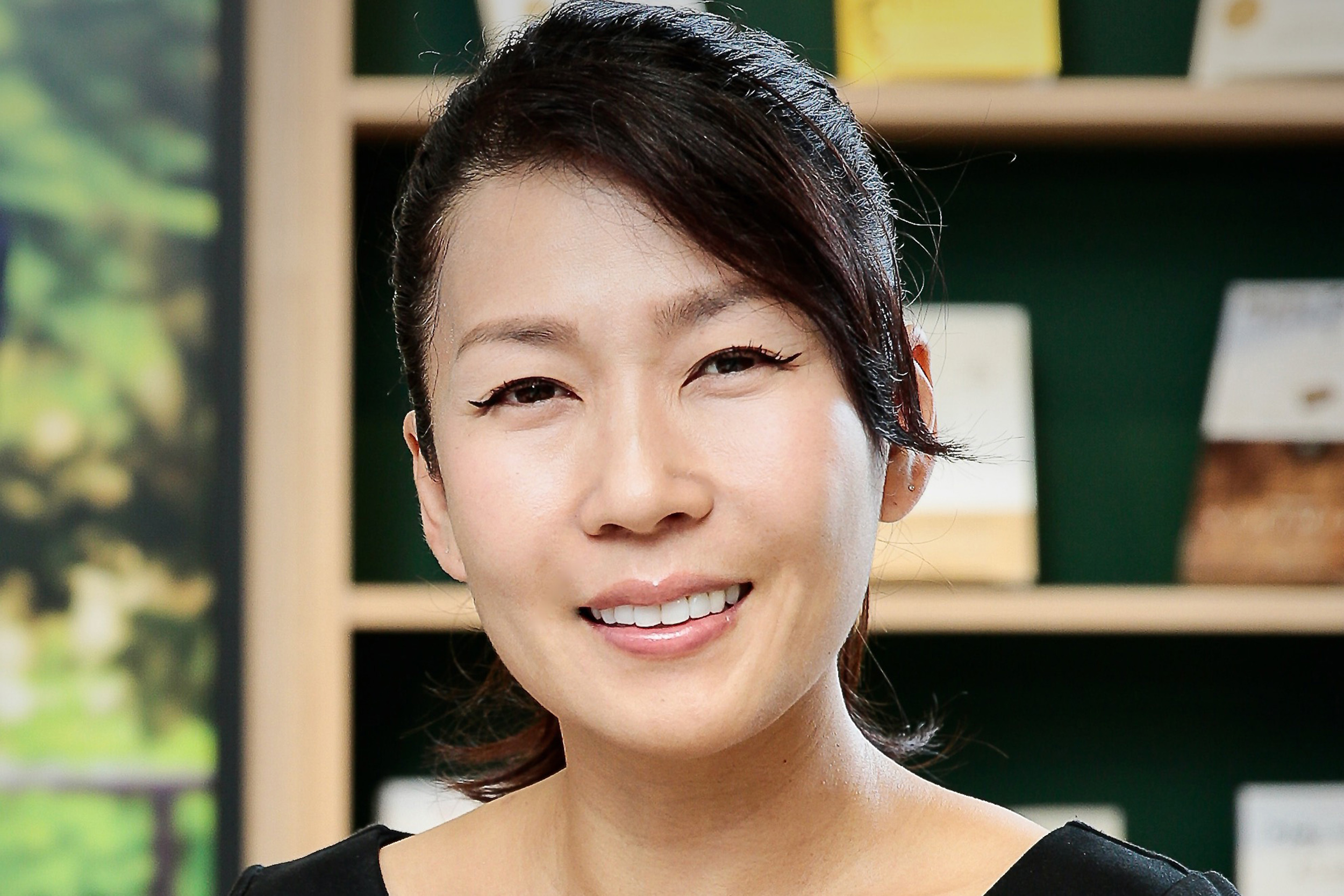
Josephine Kim
Senior lecturer on education
There is a contribution you can add to the world — the “thing” that only you can do, given your interests (what you are naturally drawn to) and your talents (what you are naturally good at), informed by your values (what feels nearest to your heart), and strongly colored by your lived experiences (the good, bad, and the ugly!). This “thing” is what uniquely positions you for your life’s most meaningful work because it is your distinct DNA. Use it as your compass to stay tethered to your purpose, say “No!” to temptations that distract you from it, and never compare your DNA to that of others.
“Serendipity is three-quarters of life.”
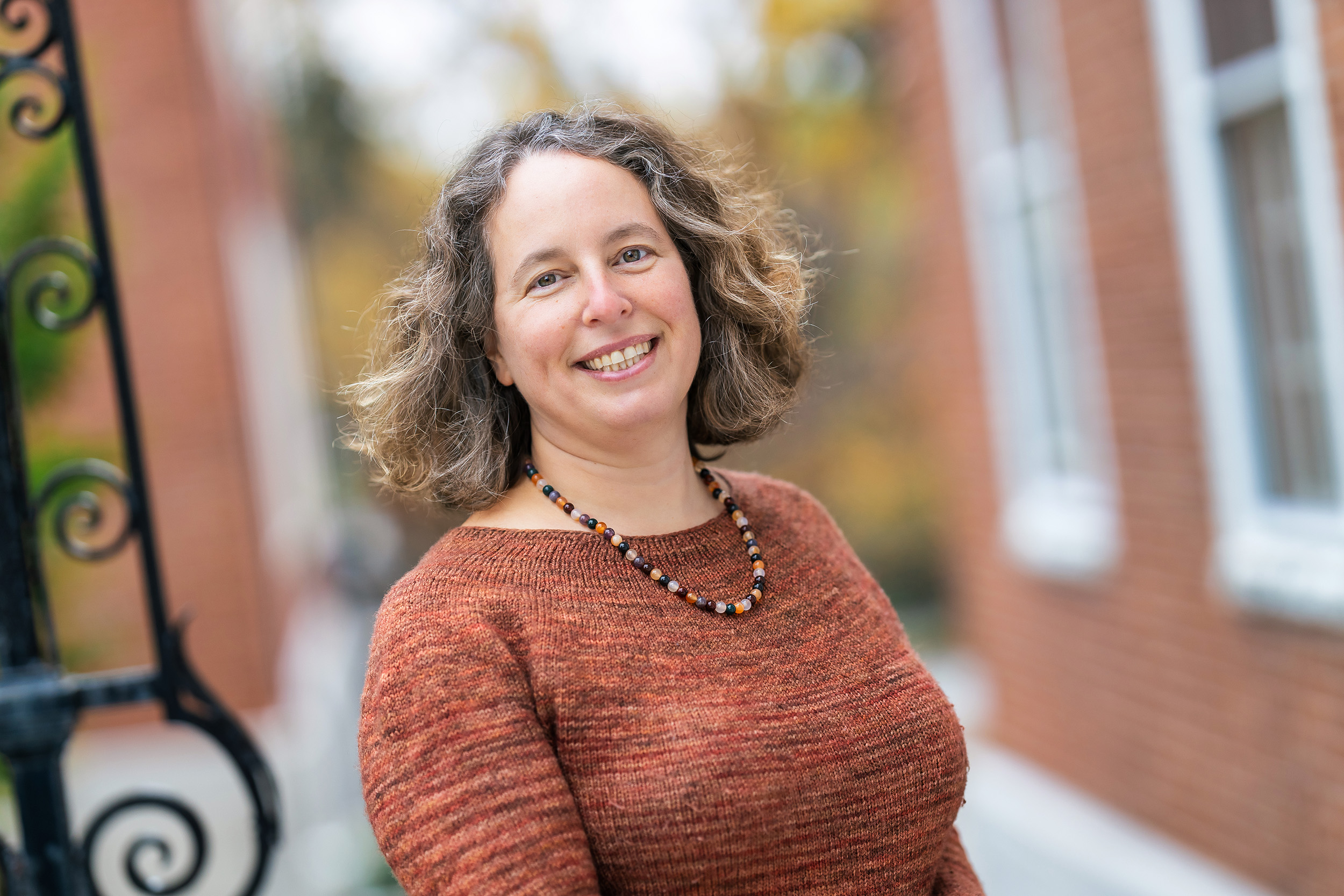
Photo by Elio Pajares
Meira Levinson
Juliana W. and William Foss Thompson Professor of Education and Society
One thing I really wish I knew when I graduated from college is that life is full of happenstance. When we learn how to tell stories about how everything in our lives was leading to x, whatever x is, we sometimes forget that there is a huge amount of serendipity — serendipity is three-quarters of life. We should both learn to embrace it and not worry that we don’t have everything planned out.
As for what new graduates should not do: They should not squander the opportunities that they have been given to do good in the world. For some, doing good may mean finding a high-paying job and caring for family and community members who have supported one over the years — giving back in that way. For others, it may mean figuring out what is good, or it may be doing service or taking a job that they think is going to bring about good in the world. It’s a remarkable privilege to graduate from Harvard, so graduates should not think that they must climb the next rung on the ladder to achieve some ultimate goal. What they should do is look around and figure out what can they do in the near term that they think is valuable and matters.
“Use your marvelous gifts to make the world a better place for others.”
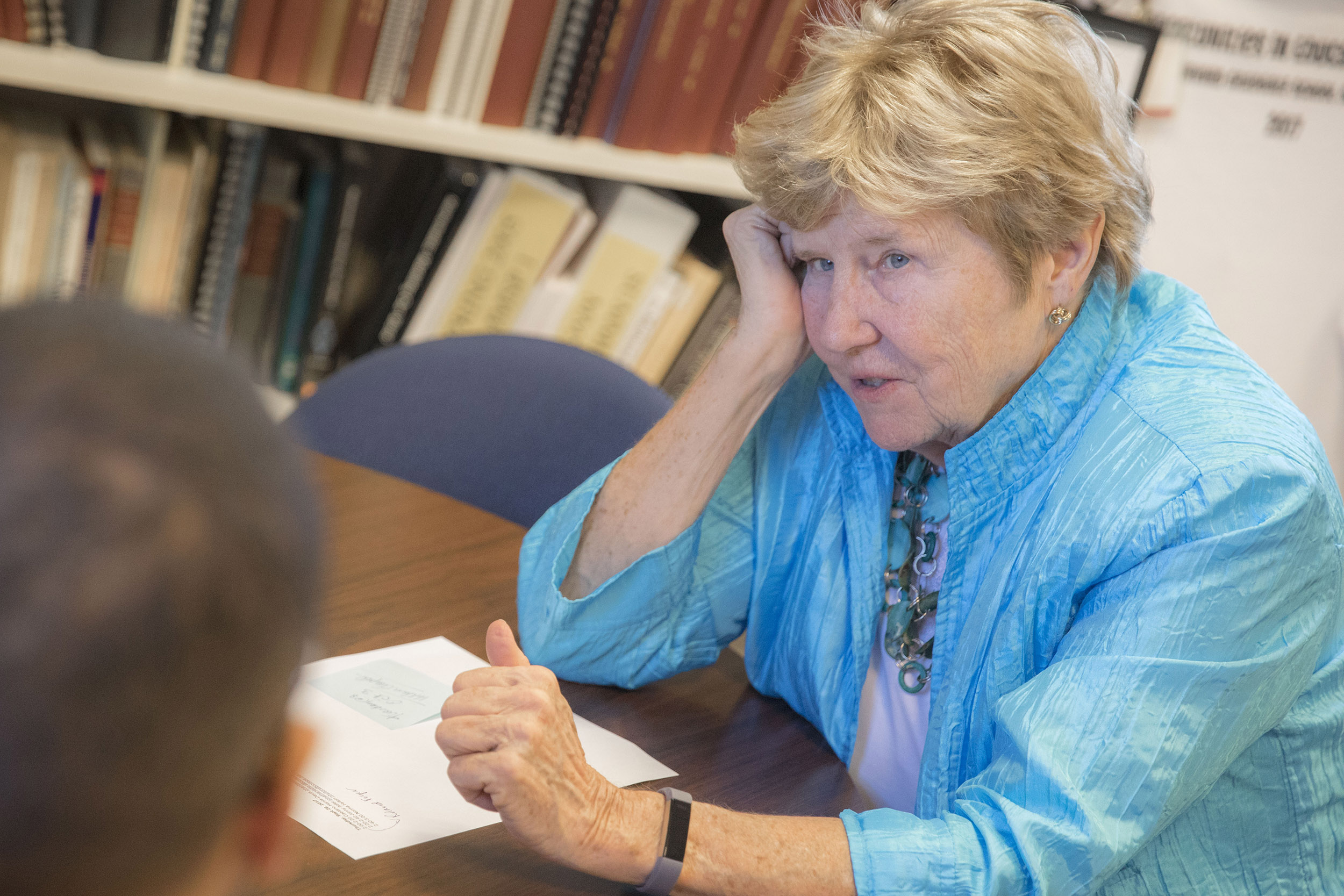
File photo by Kris Snibbe/Harvard Staff Photographer
Katherine Merseth
Senior lecturer, Graduate School of Education
As you leave the beautiful Harvard campus, many people, parents included, are going to ask, “What are you going to do?” I suggest you politely suggest to your inquisitors that they have asked the wrong question. Rather than ask what you are doing to do, they should ask “How are you going to contribute to today’s society?” This is a far more important question for Harvard graduates. You enter today’s world with great knowledge, skills, drive, and verve. Use your marvelous gifts to make the world a better place for others. You will never regret it.
“Take walks by yourself, spend time outdoors, and talk to friends and family.”
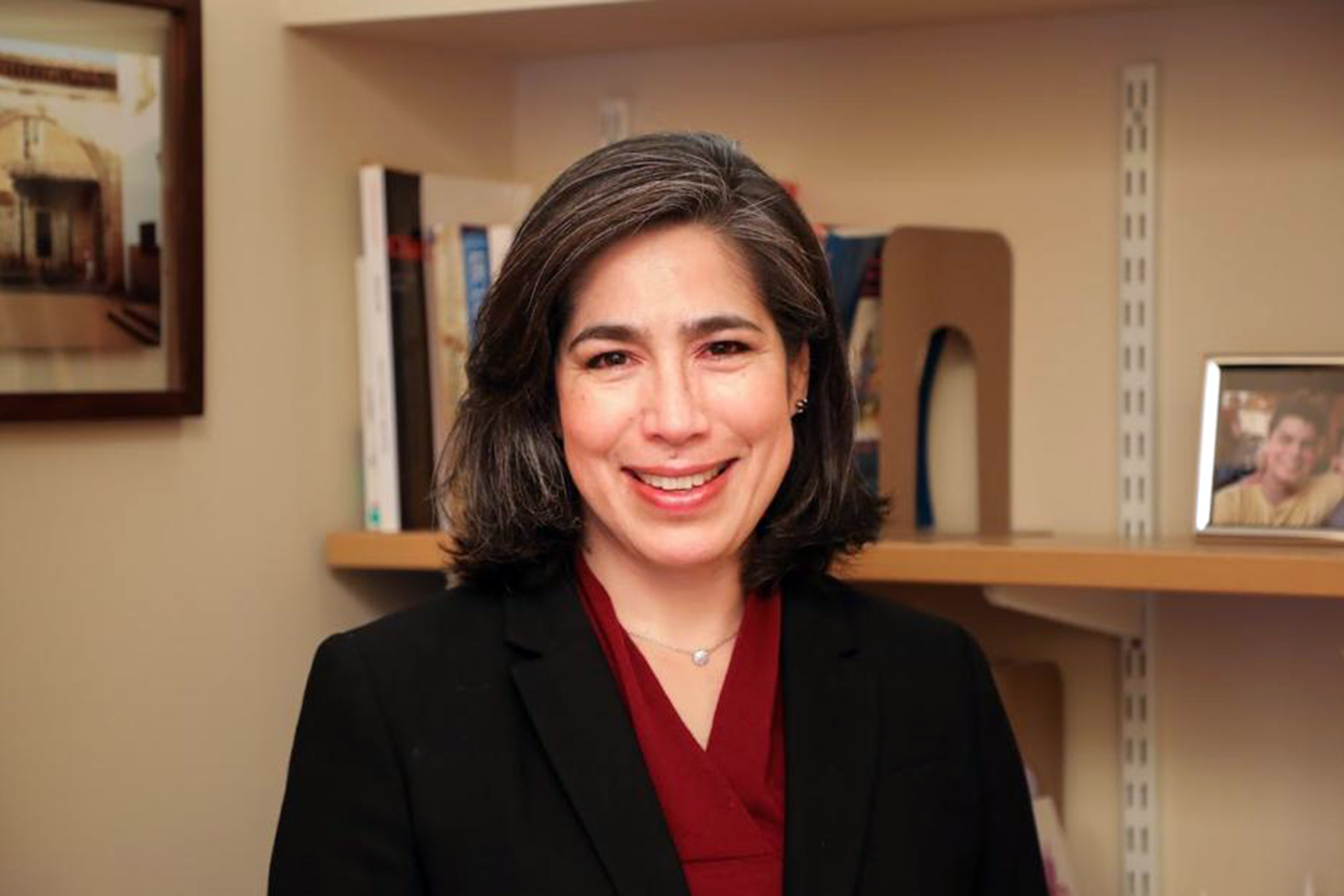
María Luisa Parra
Senior preceptor, Department of Romance Languages and Literatures
First, take time. Time to wind down from the excitement of graduation; time to think about and assess your College experience. Take walks by yourself, spend time outdoors, and talk to friends and family. As you think, assess your feelings: What were your most meaningful and fulfilling experiences in College? Where and when did you experience motivation, passion, and joy? Maybe you already have plans for the summer and next year. If you do, continue your path but don’t rush. Learn from the new experience and, again, assess if that is the path you want to continue. If you don’t, be open to new opportunities and challenges. You might discover some new interests. It is a good thing to have some work experience before engaging in a long-term career. I wish I had taken more time to work in educational settings between graduating and my Ph.D. program.
“If we’re lucky, life is long, but it’s never too early to tell people what they mean to us.”
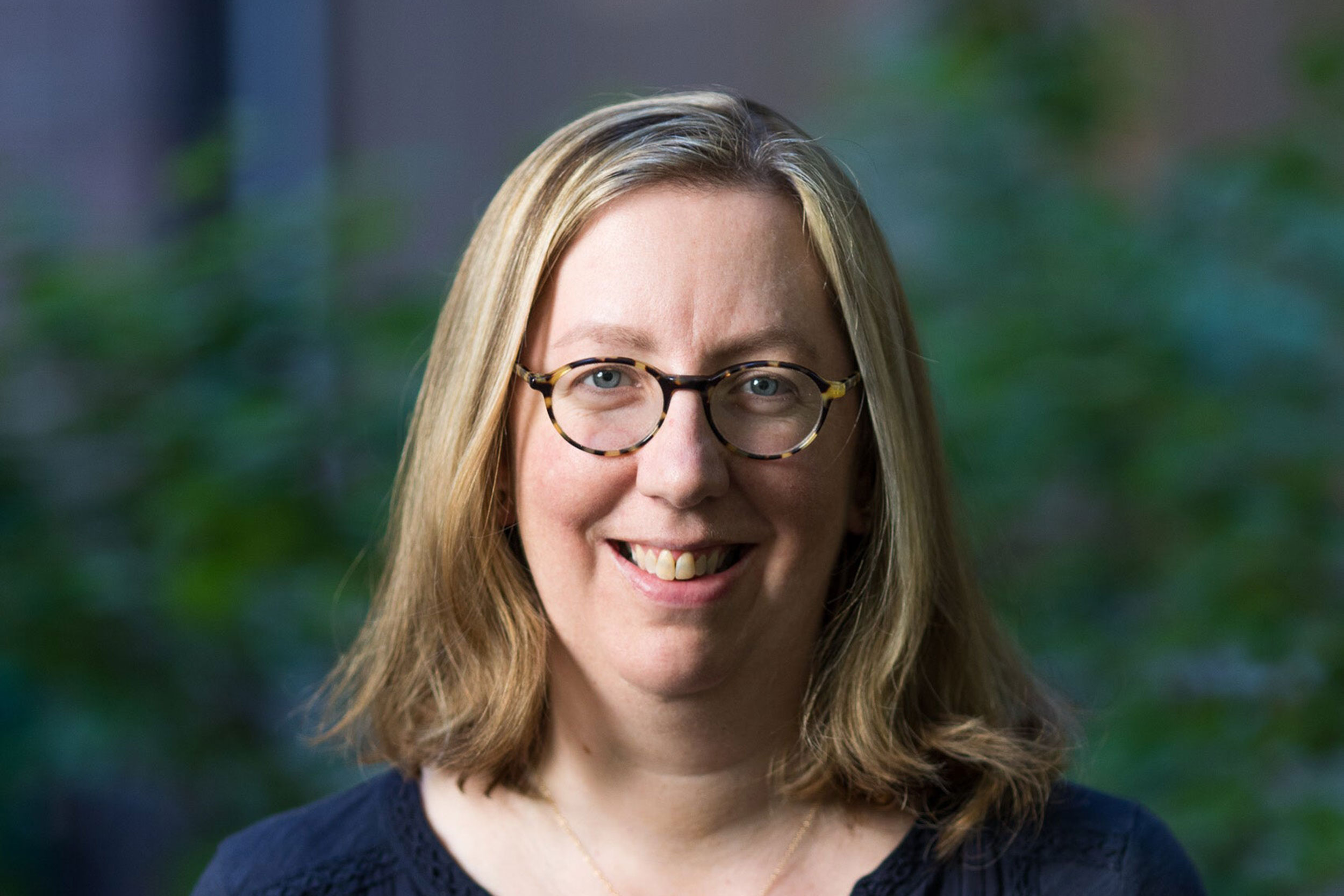
Susannah Barton Tobin
Ezra Ripley Thayer Senior Lecturer on Law
More like this
Don’t plan too far ahead. Try to immerse yourself in your next chapter without flipping the pages too quickly. The ending isn’t foreordained, and you will still get to choose your own adventures.
Second, as Bob Schieffer of CBS, quoting his mother, says: “Go vote. It makes you feel big and strong.” As we know, democracy is not a spectator sport.
And finally, in the category of advice I wish I’d gotten (or, since I likely did get it from one of the many mentors I have been fortunate to know, advice I wish I had immediately absorbed): If we’re lucky, life is long, but it’s never too early to tell people what they mean to us.







